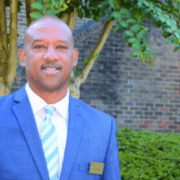100.1 FM ~ 1450 AM ~ WIZS, Your Community Voice ~ Click to LISTEN LOCAL
— Press Release
RALEIGH – In response to the unprecedented crisis caused by the COVID-19 pandemic, the North Carolina Department of Public Safety today announced it is taking an extraordinary measure to help reduce the spread of the virus in prison facilities. The Division of Adult Correction and Juvenile Justice last week transitioned the first individuals who will continue to serve their sentence in the community.
“The department has been reviewing all options to protect public safety as well as our employees and those in the state’s custody,” Public Safety Secretary Erik Hooks said. “Many of those options were implemented quickly, providing immediate impact, while others have required more preparation.”
In an effort to keep staff and those in our custody safe, DPS has taken numerous steps over the last several weeks to help reduce the spread of the virus into facilities. Some of the actions include:
- Suspending visitation, volunteers, work release, and other programs to limit the exposure to the public and avoiding mass gathering situations;
- Providing extra soap and disinfecting supplies and requiring additional cleaning regimens;
- Pre-entrance medical screenings for staff;
- Pre-intake medical screenings for new offenders and a 14-day quarantine period;
- Suspending acceptance of transfers of offenders from county jails for 14 days; and
- Dramatically reducing the movement of offenders within the prison system.
Despite these efforts, more than 35 offenders among six separate facilities have tested positive for COVID-19 so far, necessitating use of stronger measures. Twenty staff at 10 facilities have also self-reported positive test results for COVID-19.
By law, the Public Safety secretary has the authority to allow certain individuals to serve their sentence outside of a DPS prison facility, but under the supervision of community corrections officers and/or special operations officers.
Adult Correction is reviewing additional offenders for possible transition to the community to complete their sentence under supervision. All offenders under consideration must meet strict criteria and all legal requirements, such as victim notification in certain cases, before a transfer to the community is approved. The approximately 500 offenders being considered cannot have been convicted of a violent crime against a person and must fall within one of the following categories:
- Pregnant offenders
- Offenders age 65 and older with underlying health conditions
- Female offenders age 50 and older with health conditions and a release date in 2020
- Offenders age 65 and older with a release date in 2020
- Offenders already on home leave with a release date in 2020
- Offenders on work release with a release date in 2020
On Thursday, April 9, six offenders were transferred into the community. All of those six are females and are either pregnant or are 65 or older, and thus in a high-risk category as defined by the Centers for Disease Control and Prevention (CDC).
In a separate effort to reduce the number of incarcerated persons in its facilities, the department has been awarding time credits, where appropriate and in accordance with its statutory authority. This allows some offenders to reduce their maximum sentence and be released to community upon completion of the minimum sentence. In March alone, more than 300 offenders originally scheduled for release in April, May or June, were transitioned to post-release supervision by completing their minimum sentence. Through this process, many individuals who were scheduled for release this spring or early summer have already been discharged or are on an expedited schedule for transition in the next few weeks.
A total of 2,200 offenders were released in March. In fact, since January of this year, over 6,900 individuals have been released from a DPS facility. This is an increase of 10% over the same period in 2019. In addition to the actions of DPS, the North Carolina Post-Release Supervision and Parole Commission, is also reviewing offenders under its authority for possible release. For example, over the past week, the commission has released more than a dozen pregnant females to community supervision.
“We do not take these new measures lightly. Our staff are working in accordance with CDC guidelines, while being mindful of adult risk management, as well as reentry best practices in order to identify and transition adult offenders into our communities in a safe and efficient manner,” said Tim Moose, Chief Deputy Secretary of Adult Correction and Juvenile Justice.
“This is an ongoing process. We will continue to work diligently to monitor best practices and offender risk, while coordinating any future releases to community supervision, as well as adjusting to this ever-evolving situation to protect our staff, the incarcerated community and the community at large,” Moose added.
For more information, see the comprehensive list of Prisons Actions.
###









